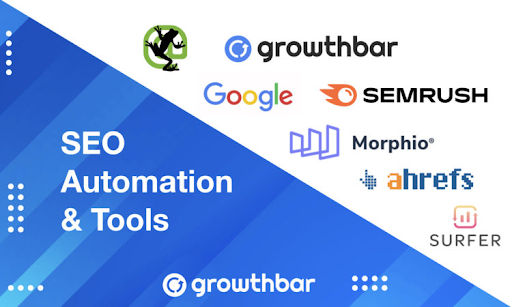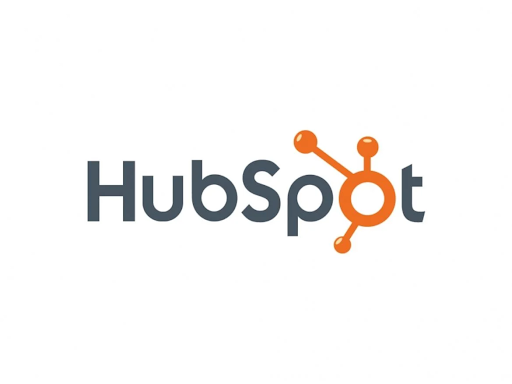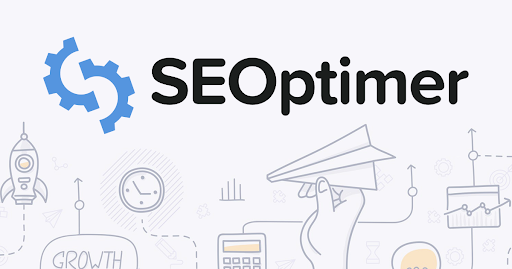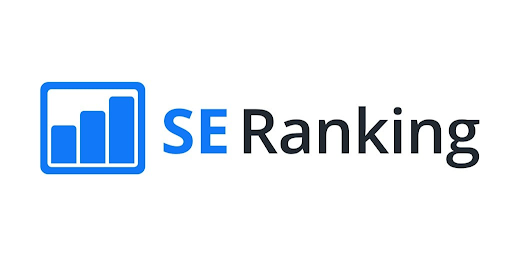Cracking the Code: How SEO Automation Tools Can Transform Your Digital Presence
November 30, 2023
Prashant Shukla
What has been updated from the old blog post:
1. Additional content to the intro section
2. Renamed ‘Which SEO Tasks Can Be Automated?’ section to ‘SEO Components That Can Be Automated’ with additional content
3. Additional content to the SEO Automation Tools section
4. Additional content to Alternatives to SEO Automation section
Summary: The blog explores the transformative power of SEO automation tools. It delves into the ways these tools can enhance digital strategies, covering topics such as efficient keyword research, automated audits, and streamlined content optimization.
Ask any SEO professional what they want for Christmas and it won’t be a surprise to hear SEO automation.
Yes, SEO is a wonderful thing. When done right, it yields the most spectacular results for your business. But notice the emphasis on ‘done right’.
We are talking about the sheer amount of time and effort behind getting SEO results. How many hours have you spent on link monitoring or backlink analysis for your strategy? While such tasks are vital, admit it – you wish there was something that could automate them.
This is where SEO automation comes to the rescue. Although you still can’t quite automate the entire SEO process end-to-end, you can certainly let artificial intelligence (AI) and SEO automation tools take over, at least partially.
The result? You don’t have to worry about long, boring, repetitive manual tasks. Additionally, you will get a lot more time to fine-tune the more critical aspects of your SEO efforts.
Understanding SEO Automation

Source: growthbarseo
Essentially, SEO automation is the use of tools and software to automate and simplify certain search engine optimization (SEO) processes. SEO is the technique of maximizing a website’s exposure on search engines such as Google.
In this sense, automation refers to the use of technology to conduct repetitive or time-consuming SEO activities more efficiently.
This development comes as a welcome respite for not just SEO professionals but also digital marketers, agencies, and businesses.
This is because of how much time, effort, and money it saves. The biggest advantage of automation in SEO is the reduction of manual work and the speeding up of dull and lengthy processes.
Also Read: White Hat SEO vs Black Hat SEO vs Gray Hat SEO
How Does SEO Automation Work?
The idea behind SEO automation is straightforward. You need to first arrange the best SEO automated tools as per your requirements. These consist of desktop software and utilities that essentially assist webmasters in the automation of repetitive SEO tasks.
As a process, SEO automation can work on any of the following:
Data collection: Data collection and aggregation is the first and most basic level of automation in SEO. It enables you to automate SEO reporting, dashboard rank tracking, backlinks, site crawl data, etc. This is the bedrock of the rest of your SEO automation strategy. You don’t even need sophisticated or expensive SEO and marketing automation software to pull this off. Before you jump into it, always thoroughly consider the SLAs, security, scale, and stability of any such tool.
Fish for insights: SEO automation begins working on churning out actionable, site-specific insights once it has progressed well with data collection. These insights consist of alerts and recommendations.
Alerts utilize AI and machine learning algorithms to keep an eye out for any deviations from normal in your SEO. For example, an alert can notify you if there’s a sudden change in the rankings.
Recommendations provide you with custom insights in the form of various analyses: content, log files, backlinks, keyword research, technical audits, etc. Your experts can then choose to follow through with certain recommendations and tailor their strategy.
Scaling execution: If the SEO automation tools at your disposal are sophisticated enough, they can also assist you with execution. These often consist of deploying real-time changes to a site without any need for human intervention. Truth be told, this last stage of SEO automation is still years away from becoming a common weapon in every marketer’s arsenal.
At the end of the day, how SEO works in automation is down to how you approach it. Here, you can always favor the three-step methodology:
- Discovering the right data,
- Selecting the right strategy,
- Implementing A/B testing.
This way, you can refine your strategy before taking it live on the site for good. Remember, despite the level of automation, a good SEO expert always keeps track of everything. The automation will do the work for you in terms of data and recommendations. How you piece it all together will always be the final piece of the puzzle!
Advantages of SEO Automation
SEO automation tools enable you to simplify your campaigns and improve efficiency and productivity. Those at the pinnacle of the SEO industry already regard automation in SEO as less of a luxury and more of a necessity.
Naturally, when you are freed from doing tiring manual tasks, you can concentrate on adding work value. These tasks could be anything, such as technical site audits or reporting.
That doesn’t mean that you can automate everything. The scope of SEO automation is still evolving, and we haven’t reached that stage yet. But there’s a great case to be made for why you should give SEO automation a shot:
- Reduces manual work in SEO
- Saves you time and effort when it comes to repetitive, dull, and laborious tasks
- Promotes better resource utilization so that you can focus on more urgent and essential SEO tasks
- Compensates for lack of adequate technical knowledge as automated SEO software can help you with accomplishing complex tasks with ease
- Saves operational and hiring costs because there are many paid and free SEO automation tools available that you can readily access and integrate into your work pipeline
- Betters speed, scale, and efficiency of SEO processes which in turn leads to the delivery of faster insights and quicker results
- Eliminates the risk of manual errors and increases the accuracy and thoroughness of data and SEO processes
- Allows you to meet stricter deadlines and complete more projects on time
SEO Components That Can Be Automated
This is perhaps the most important question SEO marketers are asking today: “What can I automate for my SEO strategy?” Well, there are different kinds of automated SEO software that can take care of different processes. All you need to do is some minor initial configuration after learning how to use them.
Here is a good selection of repetitive tasks that you must automate to make your SEO campaign more efficient:
Keyword research: Checking the position of a website on Google for a given competing keyword requires continuous monitoring. To find suitable keywords for your content, use keyword research tools like SEMrush, Ahrefs, and Google Keyword Planner, which can help you find keywords with large search volumes
On-page SEO: Content management systems (CMS) frequently include plugins or tools that can assist in automating specific on-page SEO work. Yoast SEO for WordPress, for example, can help you optimize meta titles, descriptions, and other on-page features
Site audits: Tracking the performance of a site, especially after launching an SEO campaign, can be very tedious Screaming Frog and DeepCrawl are two tools that can automate the process of scanning your website to uncover technical SEO flaws such as broken links, uptime, page load time, etc
Link building: Monitoring every site page and associated quality backlinks is another process that eats up precious time. With automated SEO optimization, you can speed it up. Tools such as BuzzStream or Pitchbox can help you automate link-building, thus enhancing your site’s authority and trust with greater efficiency.
Brand mentions and links monitoring: Keeping a tab on what online conversations are happening around your business in real time is essential. But it can be extremely time-consuming as well. The good news is that many monitoring tools use automation to continuously measure your brand perception and relevant links.
Content creation: Explore AI-powered content-generating tools for developing one-of-a-kind and relevant content. Use content optimization tools to improve readability, keyword density, and other SEO considerations.
Social media: Schedule and automate social media postings with tools such as Buffer or Hootsuite. This aids in the maintenance of a consistent social media presence
Competitor monitoring: It might be difficult to maintain track of all of your competitors, especially if you have a large number of them. However, by automating competitor monitoring, you can make it easier for your brand to understand who it’s competing against and develop strategies to outrank them in search results.
XML sitemaps: Most content management systems offer tools that build and update XML sitemaps automatically, assisting search engines in understanding the structure of your website
Robot.txt files: To regulate how search engines scan your site, you can use CMS or plugins to manage and update your robots.txt file.
AI-powered SEO: Explore AI-powered SEO tools that can analyze data, spot patterns, and provide data-driven suggestions.
Predict changes in search engine algorithms with machine learning techniques and alter methods accordingly.
Performance monitoring: SEO Automation tools can monitor your website’s performance in real-time, track keyword ranks, and give insights into user behavior. This aids in the development of data-driven strategies to optimize your SEO approach.
Reporting: Instead of manually compiling data, automation tools like Google Data Studio or Tableau can generate SEO reports with key metrics, allowing you to track the effectiveness of your SEO efforts over time.
Also Read: What’s the Difference Between SEO and SEM?
The Best SEO Automation Tools for a Supercharged SEO
Now that you understand the basics of how to automate SEO, you need to grab hold of the best tools and software for the same. The good news is that the internet is filled with great options for every specific task that you need to automate for your SEO campaign.
In the following list, we have noted down the ones that we can’t recommend enough. These SEO automation tools offer a good mix of functionalities to cover all your bases. So, what are they? Here we go:
Yoast
- Purpose: WordPress plugin for on-page SEO
- Features: Helps optimize content for search engines, provides readability analysis, and offers suggestions for improvement
- Pricing: ₹8,246 per year
SEMrush

Source: Semrush
- Purpose: Comprehensive SEO tool for keyword research, backlink analysis, competitor analysis, and much more
- Features: Keyword tracking, site audit, content marketing, social media management, and much more
- Pricing: ₹41,562 per month for the Business Plan
Ahrefs

Source: Aherf
- Purpose: SEO tool for backlink analysis, keyword research, and competitor analysis
- Features: Site explorer, content explorer, site audit, keyword explorer, and much more
- Pricing: ₹83,212 for the Enterprise Plan.
Google Search Console

Source: Google Search Console
- Purpose: Google’s official tool to monitor and optimize the visibility of your website on Google Search
- Features: Provides insights into how Googlebot views your website, monitors search traffic, and helps resolve issues
- Pricing: Free-to-use
Moz

Source: Moz
- Purpose: SEO tool suite for keyword research, link building, site audits, and rank tracking
- Features: Moz keyword explorer, link explorer, site crawl
- Pricing: ₹34,896 per month for the Premium Plan
Screming Frog SEO Spider
- Purpose: Website crawling tool for SEO audits
- Features: Crawls websites to analyze on-page SEO elements, and content analysis, and supports various schema types
- Pricing: ₹21,571 per year
Rank Math
- Purpose: WordPress SEO plugin for on-page optimization
- Features: Google Schema Markup, content analysis, and much more
- Pricing: ₹1,415 per month for the Business Plan
HubSpot SEO

Source: Hubspot
- Purpose: Part of the HubSpot platform, it provides tools for content strategy, optimization, and tracking
- Features: Content strategy, optimization recommendations, and performance tracking
- Pricing: ₹66,629 per month for the Professional Plan
Botify
- Purpose: Technical SEO platform for enterprise-level websites
- Features: Provides insights into website crawling, indexing, and other technical SEO aspects
- Pricing: Three packages are available, namely Essential, Pro & Enterprise. Pricing will be shared basis of your requirements
SEOptimer

Source: groupbuyseotools
- Purpose: SEO audit and reporting tool
- Features: Provides a quick analysis of a website’s SEO performance and generates detailed reports
- Pricing: ₹4,914 per month for the White Label & Embedding Plan
SEO Ranking

Source: fastcomet
- Purpose: Collates raw data on everything from meta tags and headers, technical errors, and load times to internal links and even images
- Features: Automating daily monitoring, rank tracking, site audit, competitor analysis, and much more
- Pricing: ₹15,907 per month for the Business Plan
Alternative to SEO automation
So far, you have seen how comprehensive the world of SEO automation software and tools can be. Naturally, implementing these tools in your business will require time, investment, and technical expertise. If you plan to take up multiple SEO automation tools, as you should, then the expense will also be large enough.
While automation can be beneficial, it’s important to strike a balance and not rely solely on automated processes. Here are some alternatives and complementary approaches to SEO automation:
- Manual SEO audits
- Content creation and optimization
- Link building strategies
- Social media management
- User experience (UX) optimization
- Competitor analysis
- Analytics and Reporting
- Technical SEO
- Local SEO optimization
- Adapting to algorithm updates
While the benefits of SEO automation can never be understated, it does not mean you put your campaign on autopilot. Automation tools for SEO are just that – tools that will aid you in simplifying processes and improving business efficiency.
As a business, getting the right balance between human effort and software is crucial. Gradually, as machine learning and artificial intelligence in SEO become the standard, you will have to scale up automation rapidly.